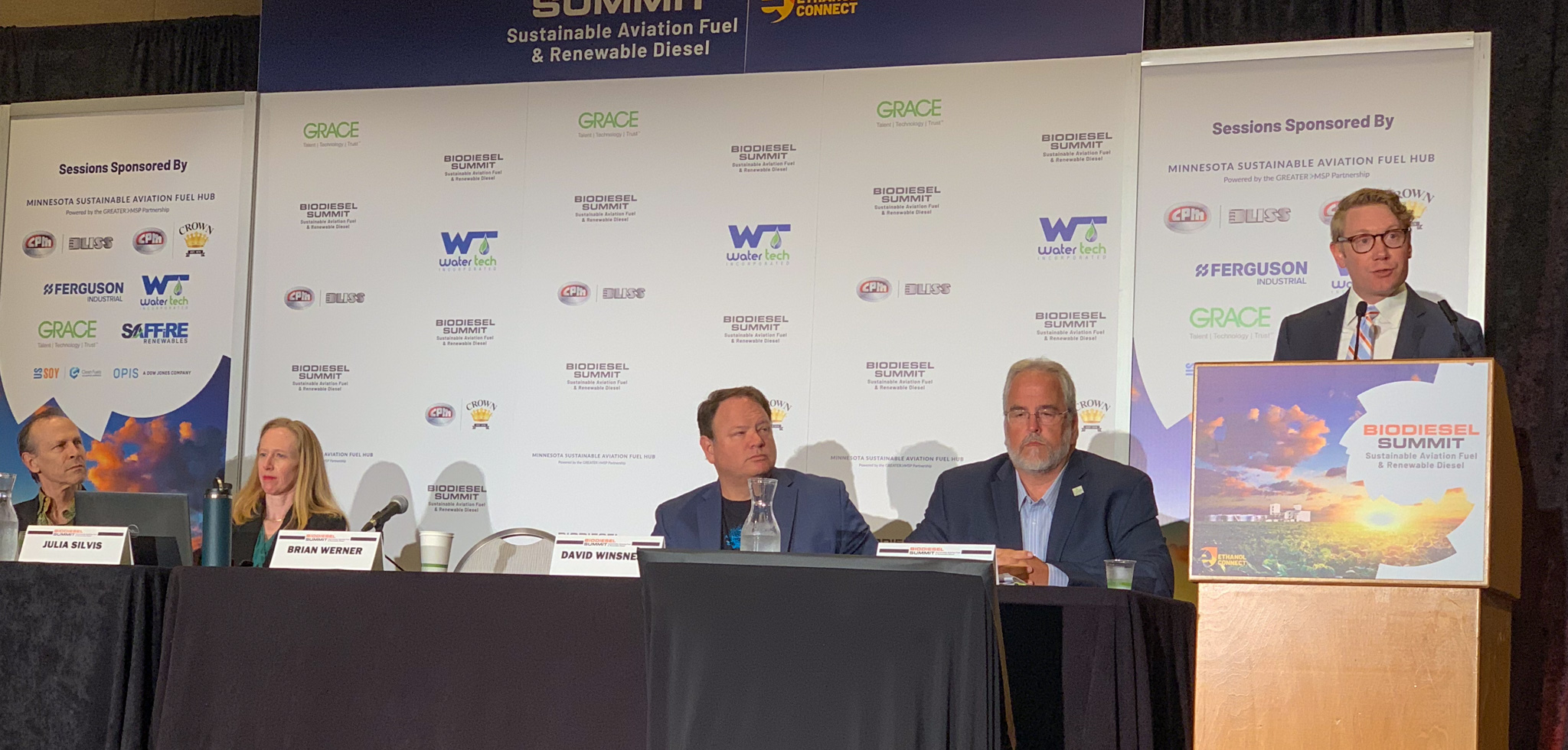During the 2024 International Fuel Ethanol Workshop and Expo (FEW) that was held in Minneapolis from June 10 to 12, University of Minnesota graduate student, Annabella Lau, attended the trade show to learn more about the ethanol industry and the important role ethanol-to-jet fuel will play for the future of sustainable aviation fuel (SAF).
Lau is currently completing a Masters of Science in Bioproducts and Biosystems Science, Engineering, and Management. She’s currently working on ethanol and corn co-products supply and demand data and aims to expand the model by building out its biofuel / SAF data and modeling capabilities.
At the 2024 FEW, she attended various panel sessions including the session that discussed the potential for Minnesota to become a SAF hub. The Minnesota Bio-Fuels Association’s executive director, Brian Werner, was among the panelists for that session.
Here’s a brief Q & A we had with Lau on her experiences at FEW:
Q. Was this the first Fuel Ethanol Workshop you’ve attended? If yes, how did you find out about it?
A. Yes, this was my first time attending the Fuel Ethanol Workshop! I’ve had FEW and the concurrent SAF/Biodiesel workshop marked in my calendar for months but wasn’t able to attend for financial reasons. I was notified that a member of the advisory board for the Bioproducts and Biosystems Engineering department graciously sponsored a handful of our graduate students to attend, and I signed up immediately.
Q. You mentioned you attended the panel on SAF and found it very informative. Can you please go into detail on what you learned from that session?
A. My favorite of the sessions that I attended was the panel on the MN SAF Hub, where they discussed technology, economics, sustainability, challenges, and the vision for SAF based on lignocellulosic, ethanol, and oilseed crop-based feedstocks. This session also imparted valuable context about the ethanol industry and the collage of assets Minnesota has that primes the state to be a strong hub for aviation fuel.
Having taken some coursework involving wood chemistry and lignocellulosic biomass, I enjoyed learning about how Comstock Fuels is converting wood to SAF considering how notoriously difficult it is to use the carbons in wood to make fuels and bioproducts. Brian Werner from the Minnesota Bio-Fuels Association discussed trends in ethanol supply and demand that contextualized the role that SAF can play in ethanol markets. He also outlined the key challenges for ethanol-to-jet and tools to overcome them, which is especially valuable to anyone interested in biojet fuel production in the midwest. GreaterMSP focused on logistics of the fuel hub where I learned about the strategic plan to scale SAF in Minnesota. I especially enjoyed Nick Jordan’s presentation because he represented the University of Minnesota’s Forever Green Initiative, a project that I’m familiar with, and showed how my school can be involved in the SAF hub. He discussed challenges, benefits, and plans to develop new oilseed crops and how they can be introduced to biofuel markets.
Q. Anything else you’d like share with us about your experience at FEW?
A. Being a student at FEW gave me a slightly different perspective than most participants. I was introduced to a diverse array of specialties that people have in the biofuel industry such as biological sciences, operations, product management, finances, sustainability, and policy, which helped me understand the greater biofuel landscape and where I fit in it. It was valuable to learn about each stakeholder, their interests, and pain points. This was an incredible and detailed introduction to the ethanol and biofuel industry that helped me understand the role I want to play in it and the expertise I need to develop to do so!
Picture caption: MN Bio-Fuels executive director, Brian Werner, at the Minnesota Sustainable Aviation Fuel Hub: Approach to Advancing SAF Production from Biogenic Feedstocks panel.

